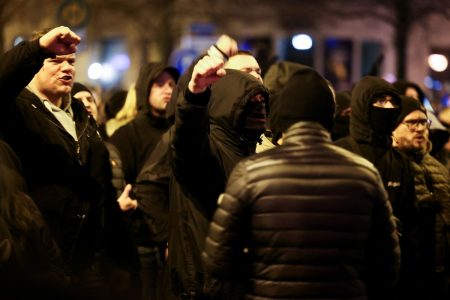In a further escalation of Ankara’s bellicose rhetoric and threats of war against Greece, Turkish Foreign Minister Mevlut Cavusoglu said that Turkey will decide “when and where we shall go”, referring to the prospect of a landing on and occupation of a Greek island.
Cavusoglu was responding to Prime Minister Kyriakos’ Mitsotakis rebuff of Turkish President Recep Tayyip Erdogan’s threats that the Turkish military could “come at night” and land on one of the Eastern Aegean Greek islands that Ankara insists should be stripped of its military defences.
In remarks after a 12 September meeting with French President Emmnauel Macron in Paris, Mitsotakis picked up the gauntlet, declaring, “To those who say ‘We will come at night’, we respond that we await for them [Turkish forces] in the light of day.»
Continual inflammatory rhetoric
The continual exchange of inflammatory rhetoric between Ankara and Athens in large measure explains the heightened concerns of European leaders, diplomats, and the international press over the prospect of a Greek-Turkish military confrontation.
Whereas this prospect was long described as a prospective “accident”, and still often is, the now recurrent use of the word war as a distinct possibility, including in the Turkish and Greek press, has alarmed many.
The top story of the Turkish news outlet TGRT Haber was entitled “We shall decide that” – response to Mitsotakis’ “Come in the daylight”.
Macron stands by Greece
While Turkey is touting the supposed strengthening of its international geopolitical role, it is in fact Greece’s military alliances and strategic partnerships that have caused considerable consternation in Ankara.
Greece and France a year ago, in September, 2021, forged a strategic alliance that includes a mutual defence pact and a major procurement by Greece of three Belharra frigates, (with a three billion euro price tag and an option for a fourth), and Athens in March ordered six more Rafale fighter jets, to be delivered from the summer of 2024, so that there will be 24 Rafales in the Hellenic Air Force Fleet.
In joint statements after his talks with Mitsotakis, Macron declared, “We fully support Greece’s sovereignty”, and underlined that the strategic Greek-French military cooperation will develop further.
He also stressed that statements and provocations against Greece’s territorial integrity are unacceptable.
Cavusolglu says Greece ‘driven crazy’ by Ankara’s growing geopolitical influence
Cavusoglu did not rule out meetings between Greek and Turkish officials on the margins of the upcoming UN General Assembly meeting in New York, despite the fact that Erdogan recently declared that he does consider Greece a “worthy interlocutor”.
He noted, however, that for the time being, “There is no scheduled meeting. There has been no such initiative.”
Turkey-Libya EEZ memorandum ‘provocative’, ‘counter-productive’
The Turkish foreign minister said that, “Greece was annoyed about Turkey having undertaken an important role. First we signed with Libya the agreement on the delimitation of our maritime jurisdictions [despite the fact that the two countries’ EEZ’s are not contiguous]. Then we delimited the Western boundaries of our continental shelf.”
Greece describes the deal as a blatant violation of international law and therefore legally null and void, as Turkey expropriates large swathes of Greece’s EEZ.
The US has described the Turkey-Libya memorandum as “provocative” and counter-productive”.
“The publicity surrounding Turkey’s success in the international arena drives Greece crazy. That is why Greece wants to provoke Turkey,” Cavusoglu said regarding Ankara’s claim that Russian S-300 missile systems stationed in Crete locked on to Turkish fighter jets, and that Greek war planes harass Turkish ones.
Athens has rejected the claim, noting that the missile systems on the day of the alleged incident were in their shelters and not activated.
Cavusoglu also complained about Greece’s constant reminders in international forums and bilateral meetings that Turkey is the only NATO member state that has imposed absolutely no sanctions on Russia.


